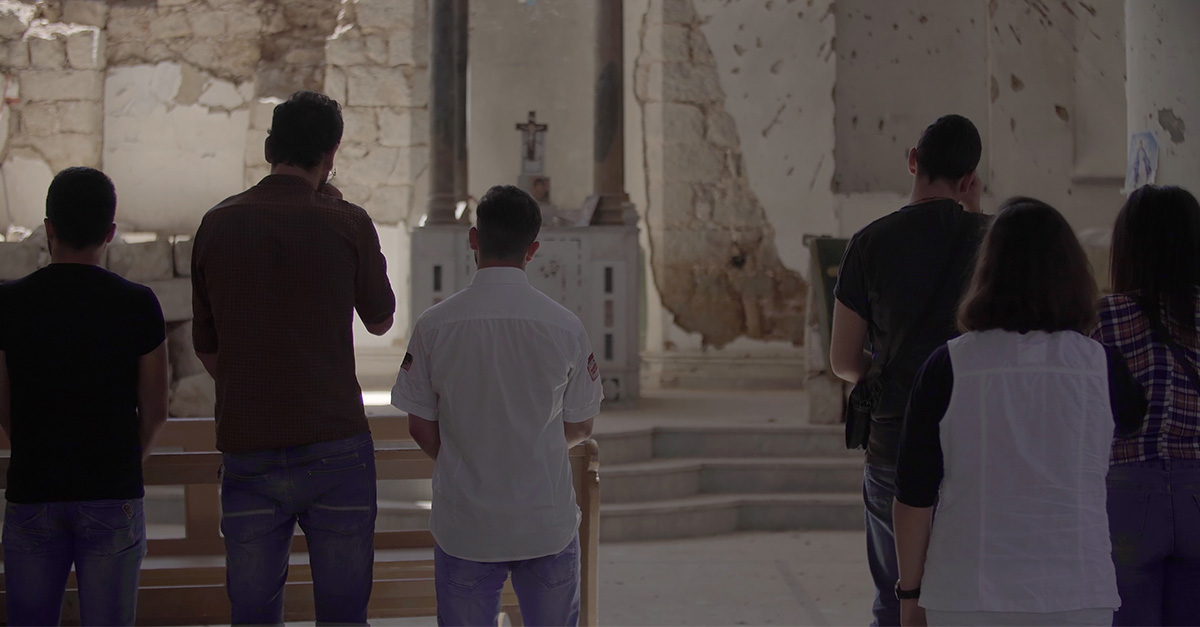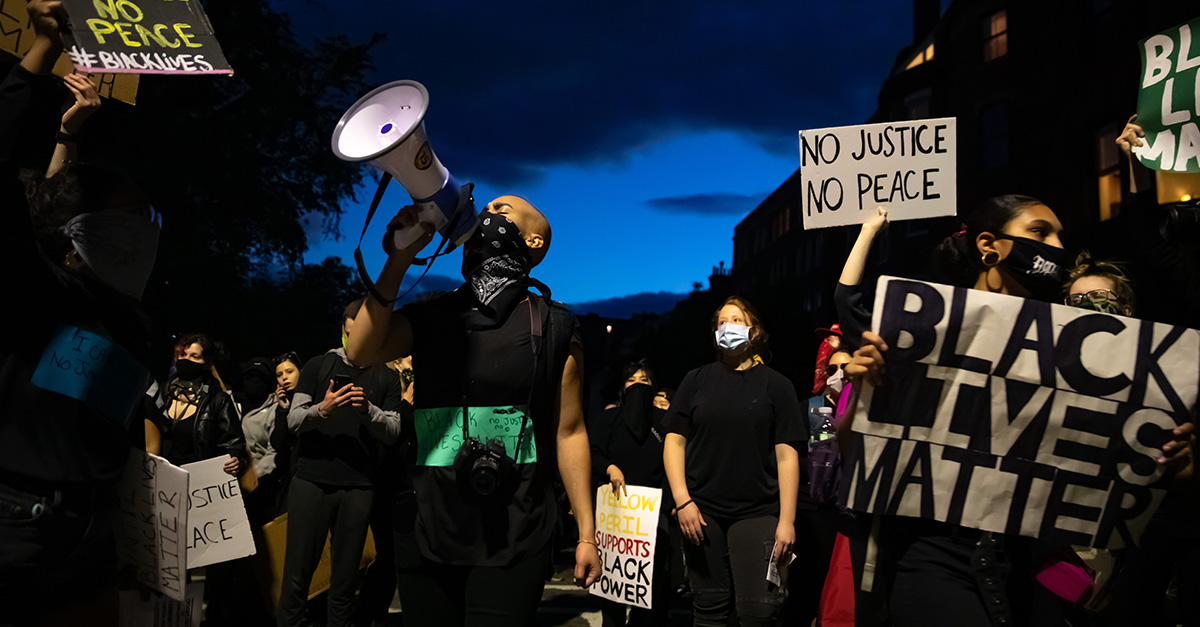


Get a free copy of Parental Rights & Education when you subscribe to our newsletter!

After running Bashar al-Assad out of power, Syria’s new Islamist leaders say they have changed their ways and are promising to let Christians and other minority groups live peacefully in their own country — but only God knows if they can actually be trusted.
In a matter of days Syria’s government was overthrown by rebels, which has some Americans rejoicing at the fall of a harsh ruler, while others are concerned that Syrians may have just come under even more totalitarian rule.
Syria has been in a state of civil war for 13 years, with various Islamic groups capturing parts of the country from President Bashar al-Assad. Between Assad and his father, Hafez, the family ruled Syria for 53 years, racking up accusations of severe repression and human rights abuses, including the younger Assad’s decision to allegedly deploy chemical weapons on his own people.
After various opposition groups united and mounted a lightning-fast offensive, the rebels captured the country’s major cities, most notably Aleppo and Damascus, and forced Assad to flee to Russia.
Syria has long been a vassal state of Russia and a part of Iran’s axis of power. Russia has protected Assad’s rule before, but with Russia weakened by and preoccupied with its war with Ukraine, it either couldn’t or chose not to save Assad this time. Iran has also been weakened by its ongoing conflict with Israel over the past year, as Israel’s crippling attacks on Hamas and Hezbollah terrorists, which were backed heavily by Iran, have left Iran and its Mullahs reeling.
Without Russia and Iran’s help, Assad quickly fell to the rebels.
No single person or group controls all of Syria. However, Hayat Tahrir al-Sham (HTS) and its leader Abu Mohammad al-Jolani (which is sometimes spelled Jawlani) have taken control of much of Syria. The United States has a $10 million bounty on Jolani due to his involvement in terrorist groups such as al-Qaeda and the Islamic State.
Jolani began his rise to power more than 20 years ago when he was inspired by Osama bin Laden and the attacks on the World Trade Center on September 11, 2001. He fought against the United States in Iraq and was arrested by the U.S. and imprisoned for five years. When he got out of prison, he served as emissary to Abu Bakr al-Baghdadi, founder of the Islamic State.
Jolani eventually left al-Qaeda and the Islamic State and founded HTS, which has also been declared a terrorist group by the U.S. government.
HTS and Jolani now claim they have no interest in international jihad and only want to take down Assad and create a freer Syria, though under Islamic rule.
HTS has been fighting against al-Qaeda and the Islamic State for several years and have claimed they do not want to be enemies with the West.
Currently Jolani and his forces are saying what the West and Christians want to hear. Jolani has stated, “Aleppo has always been a meeting point for civilizations and cultures, and it will remain so, with a long history of cultural and religious diversity.”
Regarding the minority groups in Syria, he told CNN, “No one has the right to erase another group. These sects have coexisted in this region for hundreds of years, and no one has the right to eliminate them.”
For the time being, it seems HTS and Jolani are keeping their word, allegedly telling Christians that they can celebrate Christmas and that HTS isn’t there to harm them.
According to state-owned media in Syria, the group has banned the forced wearing of the hijab, saying, “The High Command categorically prohibits forcing women to wear particular clothing or interfering with their right to choose their attire or making claims regarding their appearance.”
Still, there is much reason to doubt that HTS will remain friendly to those that many other Islamic radical groups have persecuted and continue to persecute.
HTS is an extremist group, and it has perpetrated human rights violations of its own. For several years now, it has ruled a part of northern Syria, known as Idlib, according to Sharia law.
The Druze and the Alawites are minority Muslim sects that inhabit Syria. They are considered heretics under jihadist beliefs, meaning they are worthy of death. In the past, these groups have counted on the Assad regime to protect them from Islamic radicals.
According to Christian Solidarity International (CSI), while HTS is promising peace for these groups now, their past comments and actions say something very different.
HTS’s predecessor organization Jabhat al-Nusra said that Alawites could only receive “mercy” if they “renounced” their beliefs and converted to Islam. In 2016, Nusra’s top religious official said the land must be “purged” of Alawites.
CSI says that during the civil war, Nusra targeted Alawites and kidnapped or massacred many of them.
The Druze, some of whom still live in Idlib, also endured violence from Nusra. CSI says some were killed, tortured, or had their property confiscated by Nusra. In recent years, as Nusra turned into HTS, Jolani has tried to appear more moderate, even promising peace with the Druze and saying that HTS will return their land. The Druze, however, are still required to convert to Sunni Islam.
Christians aren’t seen as heretics but as dhimmis, meaning they are subjugated people who must pay a tax. That hasn’t stopped other Islamic groups, such as ISIS, from perpetrating horrors on Christians, especially those who convert from Islam.
Nusra also kidnapped and killed Christians, but as HTS, the group has treated Christians better. Currently, HTS hasn’t declared dhimmi status on Christians.
Jolani admitted, “There were some violations against them [minorities] by certain individuals during periods of chaos, but we addressed these issues.”
Christians in Syria are divided about the recent events. Some are actually happy with the fall of the Assad regime and see Jolani as a better way forward. Most are apprehensive and uncertain. While Christians still suffered under Assad, many at least partially supported him because he protected them from Islamic jihadists.
Regardless of the relatively good treatment Christians are experiencing, the situation is still difficult for all Syrians. A curfew has been imposed from 5 p.m. to 5 a.m., many major highways are blocked, food and water are scarce, and public services have been cut off. Dr. Arwant Arslanian, a physician, was killed by sniper fire when he tried to flee Aleppo.
Their new “liberators” seem friendly, but Christians are unsure if they can be trusted.
Their uncertainty is shared by those around the world.
Alberto Miguel Fernandez, former State Department coordinator for counterterrorism communications who now serves as the vice president of the Middle East Media Research Institute, said of HTS:
“They’ve learned how to play the game. They still have what we would call extremist ideology, but they are not stupid extremists, and they are nationalist extremists. Jawlani knows that he has to moderate his tone, for example, on minorities, because this is something that people in the West will throw in his face.”
Fabrice Balanche, a specialist on Syria at the University of Lyon 2, also casts doubt on Jolani’s promises of peace.
“The transformation from a small-time Syrian jihadist in Iraq to the leader of the Syrian revolution? I am rather doubtful. Yes, Jawlani probably became more bourgeois with age and may have renounced part of his radical ideology. But I think it’s more likely that he’s playing taqiya—concealing his real intentions.”
President Joe Biden praised the fall of Assad but noted that some of the groups taking power also had human rights abuses. He said while the U.S. has taken note of HTS’s words, it would be assessing their actions.
President-elect Donald Trump has stated that the U.S. should stay out of Syria. Incoming Vice President J.D. Vance also posted on X that the U.S. should stay out of Syria but expressed concern for Christians in the area.
Perhaps author Simon Sebag Montefiore summed it up best, writing,
“What we have witnessed over the past 48 hours—the toppling of Assad statues in various cities; the opening of the hellish prisons (in which some benighted prisoners had survived for decades); the fleeing of many of the secret police; the departure of Russian and Hezbollah troops; and now the vanishing of the dictator himself—is astonishing. It is impossible to watch the fall of the brutal tyranny of the House of Assad without feeling joy.
But this is the Middle East. Anyone who remembers the Arab Spring knows that things can always get worse. And anyone who studies history knows that predictions are for fools.”
For Christians, women, and minorities ,the fall of Assad likely could mean far worse outcomes. If Jolani is just saying what the West wants to hear, then there could be atrocities like those that ISIS committed when it beheaded, raped, and displaced Christians and other minorities across the Middle East.
There are numerous examples of how things can always get worse in the Middle East. Regime changes are rarely a stabilizing or positive development. When Islamic theocracies get power, they usually install Sharia law and persecute their subjects.
One need look no further than the Taliban, who made similar promises to the West that they would respect the rights of minorities and women, only to seize power after the U.S.’s disastrous exit and go right back to persecuting women and Christians.
HTS could be doing the same thing.
But we may never know because there’s a chance HTS won’t even retain power. As with any power vacuum brought about when a government suddenly falls, there are other groups and nations fighting for control in Syria. Turkey is engaging in military action in Syria in their conflict with the Kurds and may try to gain control in the area. Israel has increased its military presence in Syria and the Golan Heights, seeking to protect itself from possible aggression from Syria — though Israel has extended a hand of peace to the nation.

For American Christians worried about the fate of Syrian Christians, there are no good answers. No one can possibly know what will happen in Syria or the greater Middle East.
Except God. He knows, and despite all the Islamic groups and nations seeking to exercise control over Syria, it is He who is really in control. He also controls the hearts of men.
Christians should pray that God would change the hearts of those who would do harm to Christians and others who are at risk. Pray for wisdom and guidance for world leaders and that God would lead them to seek peace.
Syria is no longer under the boot of a murderous secular dictator, and that is a good thing. For the moment, the people have a glimmer of hope for a better, a more peaceful, and a freer Syria in which to live and worship and raise their children, and they are praying that God will make it so — even if only for a little while. May He grant them that reality.
If you like this article and other content that helps you apply a biblical worldview to today’s politics and culture, consider making a donation here.

Notifications